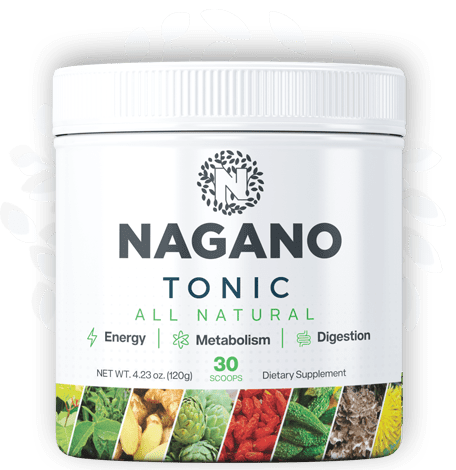How to Maintain a Strong and Healthy Liver: A Holistic Approach
The liver, often referred to as the detox center of the body, is a significant organ that plays an important role in maintaining overall health. It performs more than 500 important functions, from detoxifying harmful substances to protein synthesis, energy storage and cholesterol regulation. Because of its essential role, it is essential to prioritize liver health. Fortunately, there are several lifestyle choices, dietary habits, and self-care practices that can help maintain a strong and healthy liver. Let's explore them in detail.
1. Understand the important functions of your liver
Before knowing how to keep the liver healthy, it is important to understand its important functions. The liver is responsible for:
Detoxification: Filtering toxins from the bloodstream, including drugs, alcohol, and metabolic waste products.
Bile production: The liver produces bile, a substance necessary for the digestion and absorption of fats and fat-soluble vitamins (A, D, E, K).
Protein synthesis: The liver synthesizes key proteins, including albumin and coagulation factors, which are essential for blood volume, immunity, and clotting.
Blood sugar regulation: It stores glucose as glycogen and releases it into the bloodstream when needed to maintain stable blood sugar levels.
Cholesterol Metabolism: It helps regulate the levels of good (HDL) and bad (LDL) cholesterol in the body.
Given the important functions of the liver, maintaining its health is essential for the overall well-being of the body.
2. Follow a balanced and liver-friendly diet

A healthy diet is one of the most important factors in promoting liver health. The liver is enriched with nutrient-dense, whole foods that support its detoxification process and prevent fat accumulation.
Eat a variety of whole foods: Focus on eating a variety of fruits, vegetables, whole grains, and lean proteins. These foods are rich in antioxidants, vitamins and minerals, which help protect the liver from oxidative stress and inflammation.
Increase fiber intake: Fiber-rich foods like fruits, vegetables, legumes, and whole grains aid in digestion, help prevent constipation, and help eliminate toxins through the digestive system, easing the burden on the liver.
Consume healthy fats: Omega-3 fatty acids, found in fatty fish (such as salmon, sardines and mackerel), nuts and seeds, reduce liver inflammation and support its overall function. Avoid trans fats and limit saturated fats, as they can cause fat to accumulate in the liver.
Include cruciferous vegetables: Broccoli, Brussels sprouts, cabbage, and cauliflower are rich in compounds that promote detoxification and reduce the risk of liver disease, including fatty liver disease and liver cancer.
Spices and Herbs for Liver Health: Herbs like turmeric and garlic have anti-inflammatory properties and can boost the liver's ability to detoxify. Turmeric, in particular, contains curcumin, which reduces liver inflammation and supports liver regeneration.
3. Hydrate to support liver detoxification
Water plays an essential role in the body's detoxification process. The liver depends on hydration to flush out toxins, regulate blood circulation, and perform its vital functions effectively.
Drink plenty of water: Aim to drink the right amount of water a day, depending on your body's needs. Proper hydration keeps the liver working efficiently and helps prevent the accumulation of toxins in the body.
Herbal teas for liver health: Some herbal teas, such as dandelion root tea and milk thistle tea, are believed to support liver health. Dandelion root helps stimulate bile production, while milk thistle is rich in silymarin, a compound known to protect liver cells from damage.
4. Exercise regularly to keep the liver healthy
Exercise is one of the best ways to maintain a healthy liver. Regular physical activity helps control weight, improves blood circulation and reduces the risk of liver-related diseases.
Maintain a healthy weight: Being overweight or obese is a major risk factor for non-alcoholic fatty liver disease (NAFLD). You can reduce stress on your liver by maintaining a healthy weight through regular exercise and a balanced diet.
Aerobic and strength training: Both aerobic exercise (such as walking, swimming and cycling) and strength training (such as weight lifting) have been shown to improve liver health by reducing the risk of fatty liver, inflammation and insulin resistance.
Aim for consistency: Even moderate activity, such as 30 minutes of brisk walking or light jogging, can significantly benefit your liver and overall health most days of the week.
5. Limit alcohol consumption
Excessive alcohol consumption is one of the leading causes of liver damage worldwide. Alcohol puts significant stress on the liver, leading to inflammation, fatty liver, cirrhosis and even liver cancer.
Moderation is Key: If you drink alcohol, do so in moderation. For most people, this means no more than one drink per day for women and two drinks per day for men.
Consider Alcohol-Free Days: It's also helpful to have alcohol-free days throughout the week to give your liver time to regenerate and recover.
6. Avoid toxins and harmful substances
The liver is the body's primary detoxifier, but when exposed to many harmful substances, its ability to neutralize toxins can be overwhelming. To protect the liver:
Minimize exposure to environmental toxins: Limit exposure to chemicals, pesticides and environmental pollutants. When cleaning, choose natural, non-toxic cleaning products and avoid inhaling fumes from household chemicals and paints.
Be careful with medications: Some medications, especially over-the-counter pain relievers such as acetaminophen (Tylenol), can damage the liver if taken in excess. Always follow dosage instructions, and consult a healthcare provider if you are on long-term medication.
7. Get enough sleep and manage stress
Sleep and stress management are often overlooked aspects of liver health. Chronic stress and poor sleep can contribute to liver inflammation, weight gain, and hormonal imbalances, all of which can stress the liver.
Prioritize Restorative Sleep: Aim for 7-9 hours of quality sleep per night. Sleep is essential for liver regeneration and detoxification.
Exercise to reduce stress: Chronic stress increases cortisol levels, which can lead to fat accumulation and liver damage. Engage in stress-reducing activities such as yoga, meditation, deep breathing exercises, or spending time in nature.
8. Regular health checkups and screenings
Regular health check-ups are essential for early detection of liver problems, especially if you have risk factors such as obesity, diabetes or a history of alcohol consumption.
Monitor liver health: Blood tests that measure liver enzymes (such as ALT and AST) can help detect liver dysfunction early. If you experience symptoms such as unexplained fatigue, jaundice or abdominal bloating, seek medical attention immediately.
Vaccination for Hepatitis: Hepatitis B and C are viral infections that can cause serious liver damage. Vaccination and screening for these viruses can prevent long-term liver complications.
Conclusion
The liver is a remarkable organ, and protecting it is essential to maintaining overall health and vitality. By adopting a holistic approach that includes a balanced diet, regular exercise, stress management and mindful living practices, you can ensure that your liver remains strong and resilient throughout your life. Remember, small changes over time can lead to long-lasting benefits, so start with one or two adjustments and gradually build a liver-friendly lifestyle. With proper care, your liver will continue to perform its essential functions, detoxify your body, and support your well-being for many years to come.
________________________
Disclaimer: This information is intended for general knowledge and information purposes only, and does not constitute medical advice. Always consult a qualified healthcare professional for any health concerns.
___________________
A.R.Mazumdar (-preventive health consultant)
"EVERYONE STAY HEALTHY AND AT PEACE"
_____________________
NAGANO TONIC
Thousands of men and women across the globe are enjoying invigorating waves of jaw-dropping fat loss, abundant vitality and thriving, happy lives...
All thanks to a mystical Japanese elixir that kickstarts a deep, sleeping part of your metabolism..
Nagano Tonic is a Delicious, Powerful Elixir That Makes Weight Loss Much More Fun! This potent formula differs from every other solution because it specifically targets a dormant metabolism...
This potent formula differs from every other solution because it specifically targets a dormant metabolism...
Thanks to the unique, powerful nutrients in the Nagano Tonic , you can help support your body to accelerate fat loss, boost energy and feel younger.

Fat Loss

Energy Boost

Anti-Aging
Click on the link below for details

Fat Loss

Energy Boost

Anti-Aging

Comments
Post a Comment